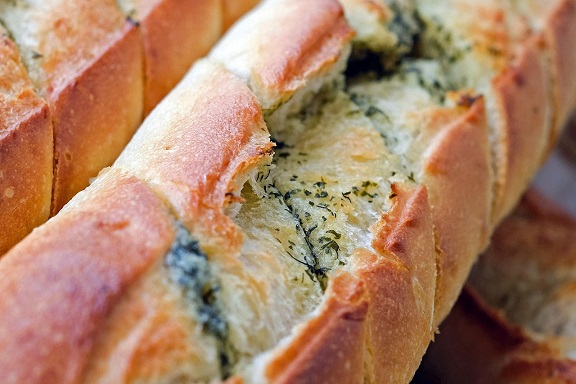
Savory, aromatic, and delightfully chewy Zwiebelbrot or German Onion Bread, brings a comforting twist to classic loaves. Packed with golden caramelized onions and sometimes flecked with herbs or bacon, this rustic bread is perfect for sandwiches, cheese boards, or soaking up soup.
With its bold flavor and crisp crust, Zwiebelbrot has carved out a beloved spot in German bakeries and households alike. Here’s how you can recreate this flavorful staple in your own kitchen.
The Origins of Zwiebelbrot
Zwiebelbrot has its roots in regional farmhouse baking, especially in southern Germany. Onions, a humble and widely available ingredient, were added to bread doughs for an extra burst of flavor and to create a heartier loaf for farmhands and families.
Traditionally baked in wood-fired ovens and served alongside hearty meals or beer, this bread has evolved from rustic necessity to gourmet favorite.
Want more savory loaves? Explore our Krustenbrot – Crusty Bread and Kartoffelbrot – Potato Bread recipes next.
Ingredients & Preparation (Step-by-Step Recipe Guide)
Ingredients for Authentic Zwiebelbrot Recipe
- 400 g (3¼ cups) bread flour
- 100 g (¾ cup) rye flour
- 1 packet (7 g) dry active yeast
- 1 tsp sugar
- 10 g (2 tsp) salt
- 2 tbsp olive oil or butter
- 300 ml (1¼ cups) warm water
- 2 large onions, finely chopped
- 1 tsp caraway seeds (optional)
- Butter or oil for sautéing
Optional tools: Loaf pan or baking stone, skillet, parchment paper
How to Make Zwiebelbrot (Step-by-Step Instructions)
Step 1: In a skillet, sauté chopped onions in butter or oil over medium heat until golden and caramelized. Let cool.
Step 2: Mix warm water, sugar, and yeast in a bowl. Let sit 10 minutes until foamy.
Step 3: In a large bowl, combine flours, salt, and caraway seeds. Add the yeast mixture and oil. Mix until dough forms, then knead for 8–10 minutes.
Step 4: Knead in the cooled onions gently. Cover the dough and let rise for 1–1.5 hours.
Step 5: Shape into a round loaf or place into a greased loaf pan. Let rise again for 30–45 minutes.
Step 6: Preheat oven to 220°C (430°F). Score the top and bake for 35–40 minutes until golden brown.
Step 7: Let cool fully on a wire rack before slicing.
Tips:
- Use sweet onions for milder flavor or red onions for a touch of sweetness.
- Add diced cooked bacon for a heartier variation.
- Sprinkle the top with extra onions or seeds before baking for visual flair.
Serving Suggestions & Variations
How to Serve Zwiebelbrot
Serve warm with salted butter, aged cheese, or liver pâté. It’s also great for grilled sandwiches or alongside goulash, sauerkraut, or lentil stew.
Variations & Regional Twists
- Bacon-Onion Bread: Add crisp bacon bits with the onions.
- Herbed Onion Bread: Mix in thyme, rosemary, or chives.
- Mini Onion Rolls: Divide dough into smaller rounds for savory rolls.
Explore Roggenbrot – Rye Bread or Vollkornbrot – Whole Grain Bread for more flavorful options.
Zwiebelbrot is the ultimate savory bread—rich in flavor, irresistibly fragrant, and incredibly versatile. Whether you’re baking it for a dinner party or weekday meal, it’s bound to steal the spotlight on any table.
Looking to expand your baking collection? Visit our German Bread Recipes page for more crusty, hearty, and time-tested favorites straight from German kitchens.
Related Recipes:
Bauernbrot (Farmer’s Bread) Recipe – A rustic sourdough loaf made from rye and wheat, Bauernbrot is a German staple known for its hearty crust and tangy flavor.
Pumpernickel Recipe – Originating from Westphalia, this dense, dark rye bread is slow-baked for hours, developing its signature malty sweetness.
Vollkornbrot (Whole Grain Bread) Recipe – Packed with whole grains and seeds, this high-fiber loaf is favored for its nutty flavor and nutritional benefits.
Roggenbrot (Rye Bread) Recipe – A classic in German bakeries, Roggenbrot is typically sourdough-based and rich in earthy rye flavor.
Brötchen (Bread Rolls) Recipe – Crisp on the outside and soft within, Brötchen are the go-to breakfast rolls found on every German table.
Pretzels (Brezn) Recipe – Twisted and golden-brown, these iconic Bavarian soft pretzels are finished with salt and loved across the globe.
Schwarzbrot (Black Bread) Recipe – Made from coarse rye and sourdough starter, this dense loaf is especially popular in northern Germany.
Dinkelbrot (Spelt Bread) Recipe – Spelt-based with a light, nutty flavor, Dinkelbrot is an ancient-grain alternative enjoyed for its digestibility.
